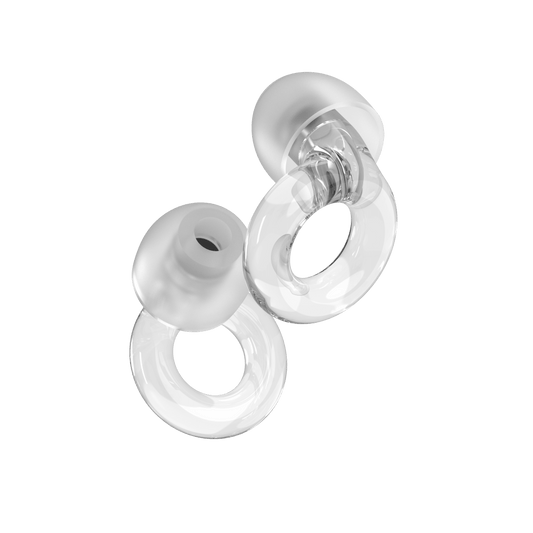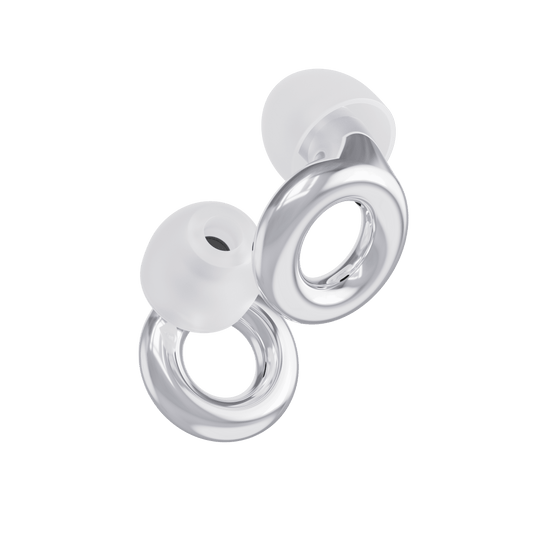Key takeaways
- When your baby cries you may find that it triggers strong emotions such as anxiety, frustration, or anger. This could be down to a number of things, for example: your hormones levels are still high postpartum, or simply just because human beings are wired that way.
- The sound of your baby crying triggers anxiety because it causes a primal reaction. It sets off the amygdala region of your brain that generates the fear response, which puts your body into fight-or-flight mode.
- Sensory overload is when the brain is getting more input from your senses than it can cope with. A parent is likely to experience symptoms such as irritability, an inability to focus, or trouble calming themselves down.
- There are coping strategies that you can practice to help get a better control. These include things like practicing deep breathing, taking a sensory break, and making sure your own needs are met too.
Noise-reducing earplugs can really help to reduce the noise of parenting, while making sure that you can still hear everything you need to.
You collapse onto the sofa, rest your head back, and close your eyes, relishing the soothing sound of silence.
Then the monitor crackles. And the sharp cry of your baby snaps you back to reality.
Ouch. They’ve only been asleep for two minutes. You thought you’d get more downtime.
Why are they crying, again? You’ve tried everything: a change of diaper, another feed, winding, and everything else you can think of. And they’re still struggling to settle.
Not only do you feel helpless, but you’re also left with a whole bunch of other emotions such as self-doubt, frustration, and an overwhelming feeling of anxiety.
So let’s take a look at why your baby’s crying might trigger feelings of anxiety, and more importantly, what you can do to cope.
Why does my baby crying give me anxiety
If every time your baby cries you’re suddenly overcome with feelings such as anxiety or even annoyance, you’re not alone.
Here are some reasons why:
- It’s the way you're wired
Having a baby changes the structure of your brain, such that the regions that control empathy and anxiety have increased activity. This means that the sound of your baby crying will evoke strong emotions, such as anxiety, anger, protectiveness, or worry.
The newborn stage can be an especially intense time and a huge shock to the system. All these strong emotions you’re feeling are completely new. And you're attempting to cope with them all whilst adapting to your new role.
- Your hormones are temperamental
During pregnancy your body is producing huge amounts of the hormones estrogen and progesterone. They’re key to creating dopamine and serotonin, which are the two neurotransmitters in the brain that are responsible for keeping calm and feeling happy.
But what happens to all those feel-good hormones postpartum? Well you can expect a huge drop almost immediately, which is likely to send you on a rollercoaster of emotions.
Your body is also running on adrenaline and probably a ton of caffeine. So when you take all that into account, it's no wonder that when your baby cries it can trigger such strong emotions and feelings.
It’s also important to consider that if you breastfeed, these hormone changes happen later down the line, at approximately six months postpartum. This is because the hormones are suppressed longer in those who breastfeed.
- You’re majorly sleep-deprived
If you’re sleep-deprived you’re more likely to see an increase in negative feelings such as anger, frustration, irritability, and sadness.
What happens to my body when a baby cries?
- The sound of your baby crying triggers a primal reaction. It sets off the amygdala region of your brain that generates the fear response – very much like an alarm clock abruptly waking you from a deep sleep. You're in fight or flight mode, so your heartbeat might start to race and your blood pressure may rise, so cue the feelings of panic and anxiety rolling in.
- A baby’s cry not only commands our attention, it also rattles our executive functions – the cognitive processes we use for making everyday decisions.
- Your feelings are a primal instinct. As humans, our responses to our children crying can’t be devoid of empathy or feeling every time our baby cries. If that was the case we wouldn’t be able to consider how best to respond and aid our baby in the best way that they need.
If someone is chronically sleep-deprived and not managing the stress that goes with it, it can lead to anxiety disorders. A 2020 study showed that there’s a strong link between sleep problems and anxiety. And while sleep disturbances don’t directly cause anxiety, they can be a huge contributing factor.
Some people are more likely to be triggered than others.
It’s true that some people are more likely to feel anxious when their baby cries.
You're more likely to experience anxiety when your baby cries if you:
Had a traumatic labor
If you went through a traumatic delivery, chances are your anxiety levels are already going to be sky-high. So add to that the sound of your baby crying and they’re now amplified through the roof.
It’s also likely that after a trauma your mama-bear instincts will kick in, leaving you feeling increasingly protective toward your baby.
Are noise-sensitive
If you are someone who’s sensitive to noise, then it’s likely that the sound of your baby crying is going to be a trigger.
It’s really common for parents to experience sensory overload, which is when your brain is getting more input from your senses that it can cope with.
As a natural response to this your body releases stress hormones, which put you into a state of fight-or-flight response. If you’re constantly exposed to these levels of sensory overload, then it can lead to intense frustration, anxiety, panic, and even depression.


How to stay calm when your baby is crying
“My baby crying stresses me out”.
You are not alone.
That’s because parenting is no easy feat, especially when you’re in the early stages of newborn anxiety. Luckily there are some things you can do to quell those anxious thoughts when you feel the panic rising.
- Take a deep breath
When you feel those waves of emotion hitting you, take a long, deep breath.
When our anxiety is triggered, adrenaline is rushing through our body, screaming to our brain that we need to enter our fight-or-flight response mode. That’s why it’s so important to calm this response down before the panic sets in.
So close your eyes. Imagine you’re sitting in your favorite peaceful spot. And take a few deep breaths. Inhale through the nose to the count of three, then slowly exhale through the mouth to the count of four. This activates a chemical in your brain to calm your nervous system down.
Once the panic has subsided, you’ll be able to think more clearly, assess the situation, and make better decisions.
- Take a sensory break
There’s no shame in it. Sometimes it’s as simple as you just need some space.
So first things first, make sure that your baby is in a safe place and that they’re not hungry or need a change. Then head to a quiet space where you can give yourself a sensory break. This involves turning off the lights and just sitting in silence for a few minutes.
You need time and space to calm down. And with your baby completely safe for a few minutes, they’ll be greeted by a mom who’s calmer, less quick-tempered, and able to deal with the situation at hand. If you are a mom who is more sensitive to stimuli such as bright lights and loud noise, give yourself those quiet moments even if your baby isn’t crying. It will set you up nicely for when your baby does start to cry.
- Make sure your needs are met too
Feeling like you’re running on empty? You’re not alone. Every parent is right there with you. But it’s important to make sure that you’re set up with the right fuel to manage challenges throughout the day. So make sure that you’re checking in on yourself.
Are you getting the right nutrition? Make sure that you’re getting at least one meal per day that is rich in fruit and vegetables. Are you getting enough exercise? Moving gets those endorphins flowing and works wonders for your overall mental wellbeing.
Sleep is also a huge factor (and getting enough of it can often seem impossible, especially for new moms). But maybe try to fit a nap in wherever you can, or let someone else take over for 30 minutes while you rest. You'll thank yourself in the long run.
Ever wanted to take the edge off the noise of parenting? Just a tiny bit? Let’s face it, a baby's cry is loud, even reaching up to 120 dB, which is similar levels to a jet plane taking off.
Noise-reducing earplugs can help you take the edge off the noise, avoid sensory overload, and help minimise your chances of burnout.
Loop Engage are earplugs that limit the volume of parenting life by reducing noise levels by up to 16 dB. With a patented acoustic channel and a newly engineered filter, they’re 100% safe to wear while looking after children. Don't worry, you’ll still be able to hear everything you need to, just less loud. They’re also ultra-comfortable and flexible, and fit into all types of ears.
- Reach out for support
Don’t be afraid to tell people how you’re feeling – your feelings matter in all of this. It’s OK to ask for a break; all new parents deserve all the support they can get in this crazy time of adjustment.
Whether it’s a friend, family member, or a healthcare professional, take the time to talk. It really helps. A professional can help you work through your feelings around your baby crying and create a plan that specifically works for you.
- Do something non-baby related
Ask yourself, when was the last time you did something just for you?
So schedule it in. The thing is it has to be something that makes you happy (as long as it’s not baby-related).
And do it guilt-free. It might seem hard to tear yourself away but you (and your baby) will feel better for it and you’ll feel like a calmer parent.
- Go easy on yourself
It’s time for some positive talk. You’re going through a tough time with a hard transition. You’ve got a baby that’s depending on you for everything and it can be hugely overwhelming at times. So make sure that you give yourself a lot of compassion.
No parent knows what they’re doing 100% of the time. We’re all learning as we go.
- Remember that crying is natural
Every baby cries. It’s natural and healthy. And your baby crying does not mean that you’re a bad parent – it’s just not always easy to deal with a crying baby.
Crying is your baby’s natural form of communication and they’re just trying to let you know that they’re there. Your tears are natural and healthy too. In fact, crying is a natural healing mechanism for stress (which babies come already equipped with). Tears help to restore the body’s chemical balance following stress – Solter.
The thing is, we would worry if a baby didn’t cry. No infant in the history of the world has been raised without it. So when it seems like the crying has been going on forever, or you're soothing away the tears for the tenth time that night, remember that it's a completely normal and natural part of their development.
Our earplugs
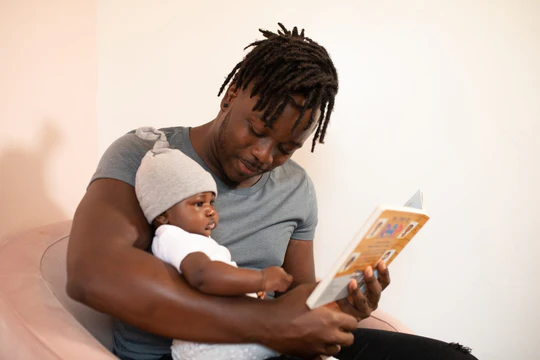
How To Deal With A Crying Baby
Discover effective strategies to soothe a crying baby, ensuring their comfort while maintaining your calm. Essential ...
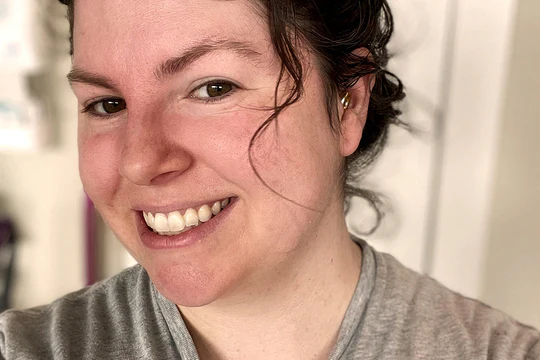
Sensory overload and kids during COVID - testimonial
COVID-19 has us all locked up inside, combining parenting, relation and work with little distraction. Sensory overloa...
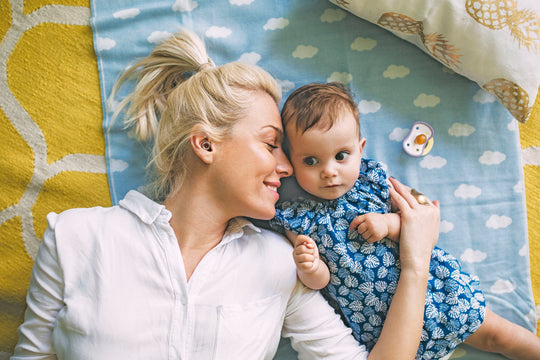
The Impact of Noise Sensitivity on Daily Lives: Unveiling the Statistics
There are as many as 6 million people with noise sensitivity in the UK We conducted a survey to ask “How much of a...















